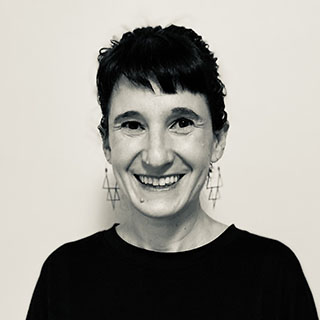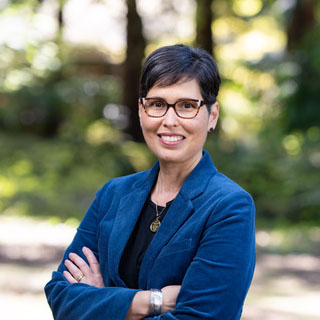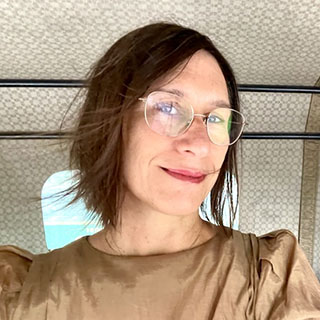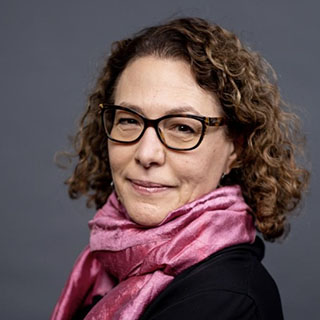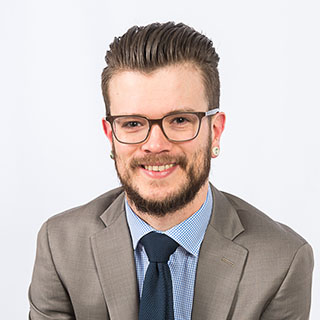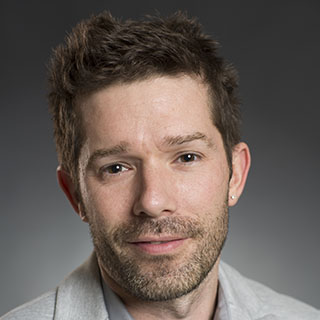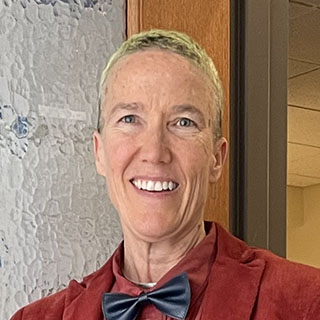
Conference Co-Chairs
Daniela Rosner (Co-Chair)
Daniela Rosner is a Professor in the Department of Human Centered Design and Engineering (HCDE) at the University of Washington, co-director of the Tactile and Tactical Design Lab, and co-director of the HCDE Masters Program. She holds adjunct appointments in the Department of Gender, Women, and Sexuality Studies (GWSS), the Department of Digital Arts and Experimental Media (DXArts), and the Allen School for Computer Science and Engineering (CSE). She also serves as an associate member of the Einstein Center for Digital Futures in Berlin, Germany.
Candis Callison (Co-Chair)
Candis Callison is the Canada Research Chair in Indigenous journalism, media, and public discourse and an Associate Professor at the University of British Columbia, jointly appointed in the School of Public Policy and Global Affairs and the Institute for Critical Indigenous Studies. Candis completed her Ph.D. in History, Anthropology, and Science, Technology, and Society, and a Master of Science in Comparative Media Studies at the Massachusetts Institute of Technology. She is the author of How Climate Change Comes to Matter: The Communal Life of Facts (Duke U Press, 2014) and the co-author of Reckoning: Journalism’s Limits and Possibilities (Oxford U Press, 2020). Candis is currently working on a long term research project about the role of journalism and media in Arctic and northern regions. She is a member of the Tahltan Nation and a regular contributor to the podcast, Media Indigena.
Jenna Grant (Co-Chair)
Jenna Grant is an associate professor of anthropology at the University of Washington, Seattle. Her work is in cultural anthropology; visual studies; and Southeast Asia studies. Jenna is interested in practices of care and repair, and has written about medical imaging, health-related aid, and experimental sciences in Cambodia. She is part of an interdisciplinary project on archives and critical histories of authoritarianisms in Southeast Asia and Southeast Asian America.
Local Organizing Committee Co-Chairs
Lisa M. Hoffman (Co-Chair)
Lisa M. Hoffman is Professor in the School of Urban Studies at University of Washington Tacoma. She received her BA in Philosophy from Yale University (1988), her MA in China Regional Studies from UW Seattle's Jackson School of International Studies (1992) and her Ph.D. in Cultural Anthropology at UC Berkeley (2000). Her scholarship has focused on questions of power, governing and social change, with a particular interest in subjectivity and its intersections with spatiality. Her current research project—"Being ‘high risk’ for cancer: personal genetics, the present self and managing future disease"—engages science and technology studies and considers how genetics and precision health are shaping subjectivity and contemporary practices of living.
Ryan Burns (Co-Chair)
Ryan Burns is Lecturer at University of Washington Bothell, a Fellow of the Royal Canadian Geographic Society, a ‘23-24 AAAS Science & Technology Policy Fellow, and Associate Professor at University of Calgary. His research interests are in the social, institutional, and urban transformations of artificial intelligence, big and open data, smart cities, and related digital spatial phenomena. His current research project "Digitizing Carbon Capitalism" explores how the digitalization and automation of oil and gas extraction leads to shifts in urban labor markets, with implications for gendered, racialized, and Indigenized divisions of labor. He currently sits on the Editorial Boards of Digital Geography and Society, Frontiers in Big Data, and ACME. He received a BA from Eastern Kentucky University in 2006, a MSc from San Diego State University in 2009, and a PhD from University of Washington in 2015.
Program Committee Co-Chairs
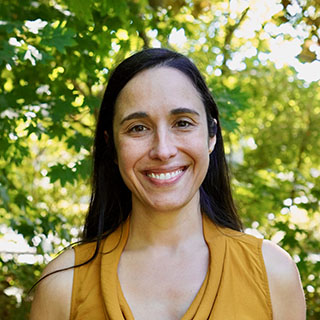
Anissa Tanweer (Co-Chair)
Anissa Tanweer is a Senior Social Scientist at the University of Washington's eScience Institute. Her scholarship leverages qualitative methods to understand the practice, culture, and organization of data-intensive research. She uses her ethnographic training and sociotechnical lens to contribute to the development and implementation of training and collaboration programs in the areas of data science and scientific software engineering.
David Ribes (Co-Chair)
David Ribes is professor in the Department of Human Centered Design and Engineering (HCDE) and director of the Data Ecologies Lab (deLAB) at the University of Washington, Seattle, USA. He is a sociologist of science and technology who focuses on the development and sustainability of research infrastructures.
Wes King (Co-Chair)
Wes King is an assistant teaching professor at the University of Washington Information School. They situate their research at the intersection of technology, religion, and gender and teach core informatics courses to undergraduate students offering critical STS perspectives on intellectual foundations of information.
Making & Doing Co-Chairs
Shiv Issar (Co-Chair)
Nazareth University, Sociology and Anthropology
Yana Boeva (Co-Chair)
University of Stuttgart, Institute for Social Sciences
Zine Festival Co-Chairs
Anne Pasek (Co-Chair)
Trent University Cultural Studies
Gabrielle Bendabdallah (Co-Chair)
University of Washington-Seattle Human Centered Design & Engineering
Conference Chair
May 2024 - September 2024
Anna Lauren Hoffmann
University of Washington-Seattle School of Information
Local Organizing Committee
Kavita Dattani
University of Washington-Seattle, Gender, Women and Sexuality Studies
Shannon Cram
University of Washington-Bothell School of Interdisciplinary Arts & Sciences
Mónica Bustamante
Javier Jiménez
Making & Doing
Erin McElroy
University of Washington-Seattle Department of Geography

